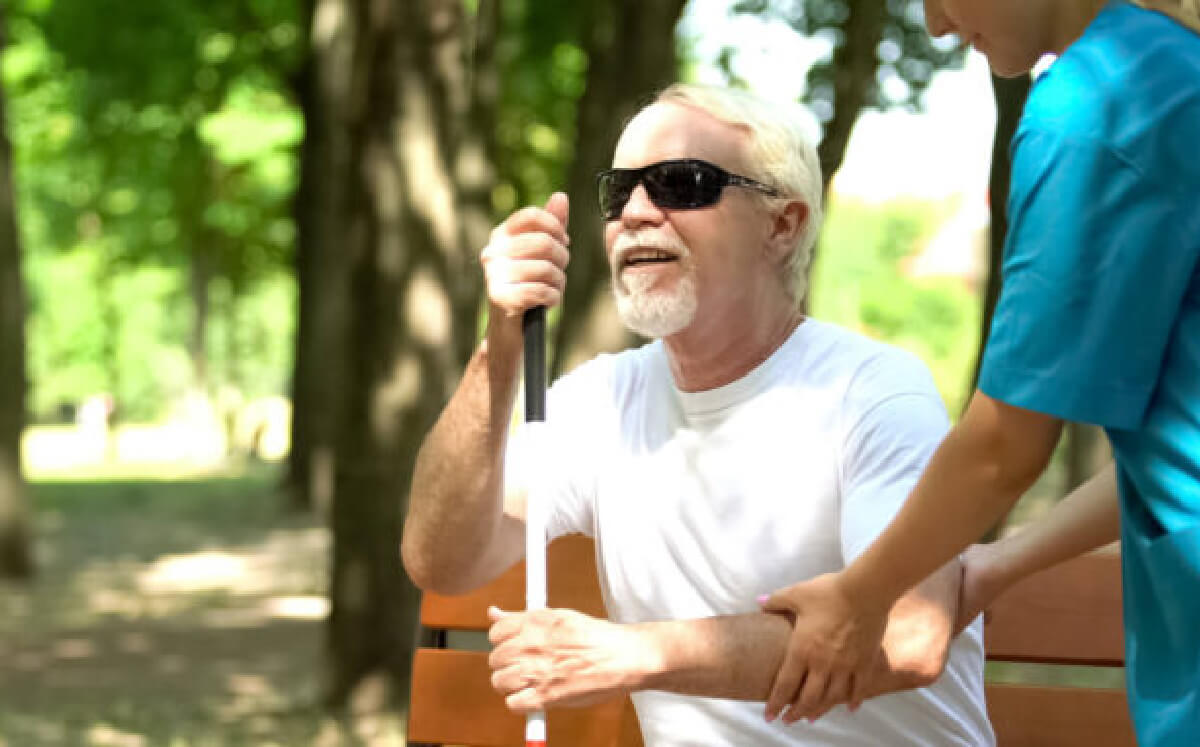How You Can Help a Blind or Visually Impaired

Good vision is a very precious gift. Unfortunately, it’s also one that many people take for granted. Can you imagine what life would be like if your vision is impaired permanently and could not be corrected by contact lenses, eyeglasses, or even vision surgery?
Other terms that are typically used to describe people with low vision include visually impaired, partially sighted, and legally blind. Low vision causes can include eye injuries, hereditary conditions, and other eye diseases such as macular degeneration or glaucoma.
Regardless of the origin, this condition can cause feelings of isolation, helplessness, and, sometimes, depression.
Visually impaired individuals might find it challenging to get around and perform typical day-to-day activities without any help. This is especially true for older adults that are visually impaired. Fortunately, providing service and home care for the elderly blind is something A to Z Care does with the utmost ease.
While service dogs can help much, the extra care provided by competent and compassionate medical home care professionals can be hard to match. At A to Z Care, we are not known as Arizona’s premier care home for the elderly blind for nothing.
To ensure we provide nothing but the best service, all of our caregivers are CPR and First Aid certified direct care workers (DCW). They also went through a meticulous background check to warrant your blind loved one’s safety at all times.
Effective Ways You Can Help the Blind or Visually Impaired
Many people have a lot of misconceptions about blindness. This causes them to be hesitant when interacting with visually impaired individuals. Often, despite an underlying desire to help, many people hold themselves back to avoid any awkward encounters.
If you are one of them, you’d surely find this article of massive value. Below are some of the simple ways people can assist and help the blind and the visually impaired. We have also added a few things you need to steer clear of when dealing with the visually impaired:
Do include them
One of the most important things you can do for a visually impaired individual is to be friendly, include them socially, and engage in conversations with them. Unfortunately, even the most friendly and outgoing blind people cannot always initiate a conversation.
There is nothing worse than leaving visually impaired people out of the conversation just because they are unable to see nonverbal cues.
Do not assume they are helpless
While some blind people may require assistance in specific circumstances, it is best not to assume they are incapable just because they cannot see. Most blind individuals have learned to do amazing things and are more independent than many people think.
While many can live with more freedom and flexibility with in-home care professionals helping them, it is recommended that you don’t assume they need help with everything.
Do communicate with them clearly
Since they cannot interpret body language accordingly, you must communicate things clearly when talking to them. In typical conversations, many subliminal messages and essential information are conveyed through facial expressions and hand movements.
As a general rule of thumb, ensure you communicate clearly with the visually impaired by using effective intonation and exact words.
Do speak with them directly
If you wish to speak with a visually impaired individual, communicate with them directly and not the person they are with. It is important to remember that it can be very frustrating for them when people assume they are non-verbal or incapable of having a conversation with others because they are blind.
Visually impaired people should be treated just like other people, competent, able, and capable of carrying out a conversation with anyone.
Conclusion
Helping the blind or visually impaired is not as difficult or complicated as most people think. The idea is to relate to them as people and not as visually impaired individuals.
